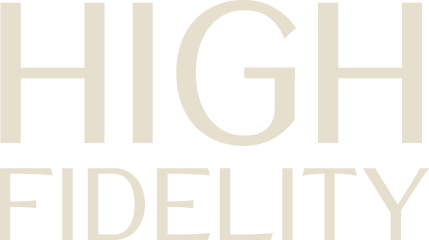As we step into 2023, it’s essential to look back and assess the significant cannabis stories of the previous year. From the launch of the adult-use marketplace to regulatory recommendations and industry trends, 2022 brought both progress and challenges. Tune into Episode 10 of the High Fidelity Podcast or read on as we explore how these stories will shape the future for consumers, businesses, and policymakers alike.
Vermont’s Adult-Use Marketplace
The biggest story of 2022 in Vermont was the long-awaited launch of the adult-use marketplace. Three retail stores opened their doors on October 1st, resulting in sales of $2.6 million for that month alone. These sales generated tax revenue, with over $329,000 collected in excise tax and $144,000 in sales tax. By law, any excess excise tax revenue is to be used to address deficits in the Cannabis Control Board’s (CCB) annual budget. The remaining funds are then allocated to the general fund and the substance abuse and prevention fund overseen by the Department of Health. Sales tax revenues support afterschool and summer learning programs, as mandated by Governor Scott.
The licensing of businesses progressed steadily, with 349 businesses licensed across various categories as of January 4th, 2023. Of these, 14 percent are classified as social equity, and approximately 18 percent fall under the economic empowerment category. The majority of businesses are cultivators, with 78 percent of these being Tier 1 operations, the smallest size operations, which set a limit for total plant canopy at 1000 sf. This underscores Vermont’s initiative to support small, craft growers.
Additionally, 31 manufacturers have been licensed, and 25% of these are Tier 1, or “home occupancy businesses.” This tier is unique to Vermont. These small-scale operations will face challenges in terms of competition and pricing, and they must prioritize product quality to thrive in the market.
Lab testing facilities, wholesalers, and retailers are also crucial components of Vermont’s cannabis industry. The state currently has three licensed lab testing facilities, two of which are operational. The limited number of labs has contributed to delays in getting products to market, but the CCB has announced plans for another cannabis-centric lab in the near future. Eight wholesalers are already playing a key role, and as of now, 34 retailers are licensed, with 25 currently open. This number is expected to increase as four more retailers are anticipated to join the market soon.
Regulatory Recommendations and Program Expansion
In November, the CCB released a report to the legislature recommending the removal of the 60% potency cap on solid concentrates. The cap’s elimination would prevent high-potency products from remaining in the illicit market, enhancing consumer safety and retaining revenue within Vermont’s regulated market. However, the CCB suggested that the removal should be accompanied by authorization for consumer education campaigns, youth prevention programs, dedicated funding for substance misuse prevention programs, and readily available public health information.
Another important development is the CCB’s recommendation to exclude cannabis products from the state’s 92% tax on e-cigarettes. This tax currently inflates the prices of vape cartridges in Vermont, making them less competitive against the illicit market and neighboring states with regulated markets. Notably, this tax does not apply to vape cartridges in the medical cannabis program.
Additionally, the CCB will take over the hemp program from the Department of Agriculture in 2023. They are currently working on regulations and guidelines for hemp products, while the USDA will handle the regulation of hemp cultivation. The CCB’s oversight will be focused on limiting intoxicating hemp products to the adult-use and medical markets, subjecting them to the same testing, public health requirements, and product registration as other cannabis products. Non-intoxicating hemp products, such as full-spectrum tinctures, capsules, and salves with specific, low-dose THC ratios, will remain under the regulation of the hemp program.
Vermont’s adult-use marketplace has experienced successful sales, and business licensing has shown promising numbers. Regulatory recommendations seek to enhance consumer safety, prevent the illicit market’s growth, and streamline taxation. Listen to Episode 10 of the High Fidelity podcast to learn more details on the topics discussed above. Nationally, more states have legalized cannabis, while challenges such as the illicit market, pricing, and federal legislation remain significant. Check out Part Two of our two part blog series on the key cannabis stories of 2022 to learn more about the US cannabis market overall. As we enter 2023, it’s crucial to build on the lessons learned and shape the cannabis industry for a prosperous and regulated future.




